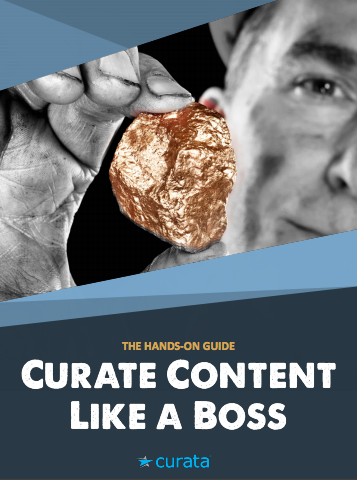- Share Content Curation: When to Claim Google+ Authorship on Facebook
- Share Content Curation: When to Claim Google+ Authorship on Twitter
- Share Content Curation: When to Claim Google+ Authorship on Linkedin
- Share Content Curation: When to Claim Google+ Authorship via email
In the past several months, content marketers have been buzzing about Google+ authorship, a new feature that allows content creators to claim authorship of their online content and link it to their Google+ profile page. Then when their content shows up in search results, a thumbnail of their photo appears next to the article like this:
Here’s how you can sign up for authorship.
Having your photo appear in search results next to the title of your content has a few key benefits:
-
Recognition. Popular online writers like Seth Godin or Ramit Sethi have instant visual recognition to their readers. Even if your following is more niche, users may begin to recognize your face over time. Seeing your photo next to content you created could prompt them to click your link over someone else’s.
-
Credibility. Content mills and scraper sites have diluted some of the quality of online content, but a photo helps you rise above less credible, lower quality content. It demonstrates that you’re a real person who has taken the time to carefully craft your content and build an online following. As you can see above, the snippet includes the size of your Google+ following so that provides additional social proof of your authority.
-
Visual appeal. Search results that include an image are more visually appealing and more likely to generate a click through than those without images. Research backs this up. According to Curata’s 2012 Curation Habits Report, curated articles with pictures get 47% more click-through activity than content without pictures.
It’s always a good idea to claim authorship of content you’ve created from scratch, but what about pieces you’ve shared from third-party sites? Is it fair to have your photo appear next to an abstract you’ve shared? Curated content is more of a gray area. After a conversation with Lee Odden of TopRank at the Content2Conversion conference in New York, here are some guidelines I came up with.
When it’s unfair to claim authorship
If you are only taking an abstract of the original content, then it’s not fair to claim authorship. Many curators add little value other than selectively identifying relevant third party content, and then sharing abstracts from that content (usually the lede). In such cases, it’s unfair to claim authorship because you really have not authored something. Furthermore, it’s likely that the original article title remains, so you may end up competing with the original content author in search results.
Below is an example of a curated article excerpt where it would not be fair not claim authorship because it simply copies the lede with no additional value:
When it’s fair to claim authorship
If you are adding significant value to the original article, it is fair to claim authorship. Simply taking an excerpt from an article or summarizing an article is not necessarily authoring something new.
In this example, the curator quotes from the original article and links to it at the bottom but includes paragraphs of original commentary arguing against the original article. It also features a different title than the original piece, so it would be fair to claim authorship.
Following my one of my suggested best practices for content curation fair use, you should strive to add more commentary than the amount of text you copy from the original article. By doing so, this both limits the amount of content you copy, and also encourages you to add meaningful and thoughtful commentary.
Also, it’s in your and the original author’s best interests to also retitle the curated article so you do not compete with the original article author.
More Resources
If you’re interested in reading more about this topic, here are two resources that you may find useful:
Google Authorship – Google’s page on how to setup and use authorship.
Content Marketing Done Right – Curata’s 30+ page eBook on best practices for content marketing and curation ethics.








